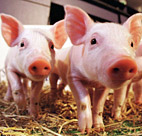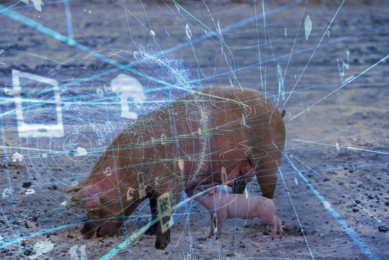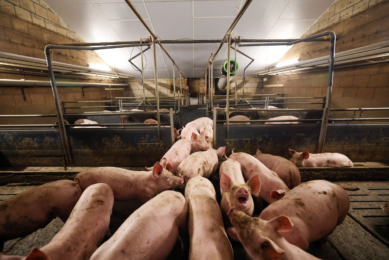Inulin helps pigs to better absorb iron

Swine research from the Agricultural Research Service (ARS) in the US indicates that inulin–a complex carbohydrate found in many plants worldwide–may help people absorb more iron from fruits, vegetables and grains.
In Ithaca, New York, ARS plant physiologist Ross Welch,
of the U.S. Plant, Soil, and Nutrition Laboratory, and Cornell University
scientists Koji Yasuda, Karl R. Roneker, Xingen Lei, and Dennis D. Miller showed
that young pigs fed corn- and soy-based diets supplemented with inulin absorbed
more iron from their feed than pigs fed the same diet without
inulin.
Benefits for humans
Welch says the discovery
may prove significant in the worldwide fight against iron deficiency. “Without
inulin, the colon absorbs very little iron from staple plant-based foods such as
soybeans and corn because they contain high amounts of phytic acid that inhibit
iron absorption.”
Young pigs
were used, says Welch, because “They’re an excellent model for studying human
iron nutrition. Their gastrointestinal tract anatomy and digestive physiology
are very similar to those in humans.”
Related
website:
ARS
To receive more animal feed news, subscribe
here











